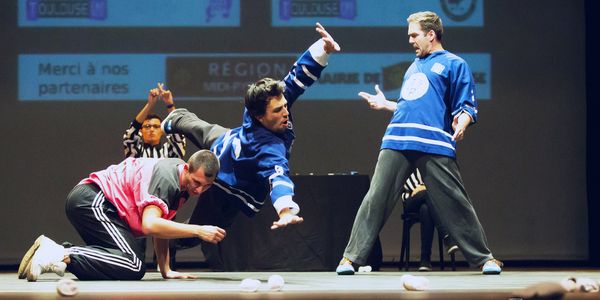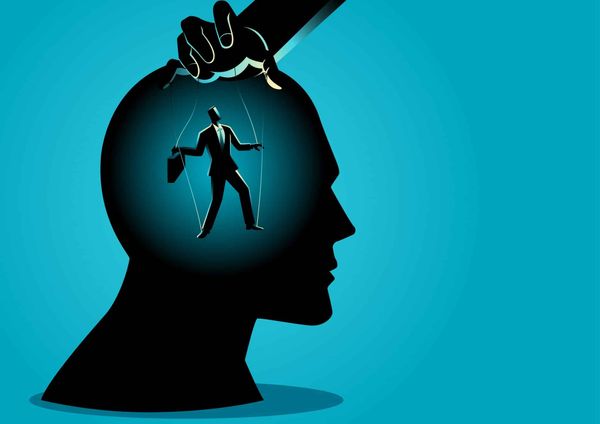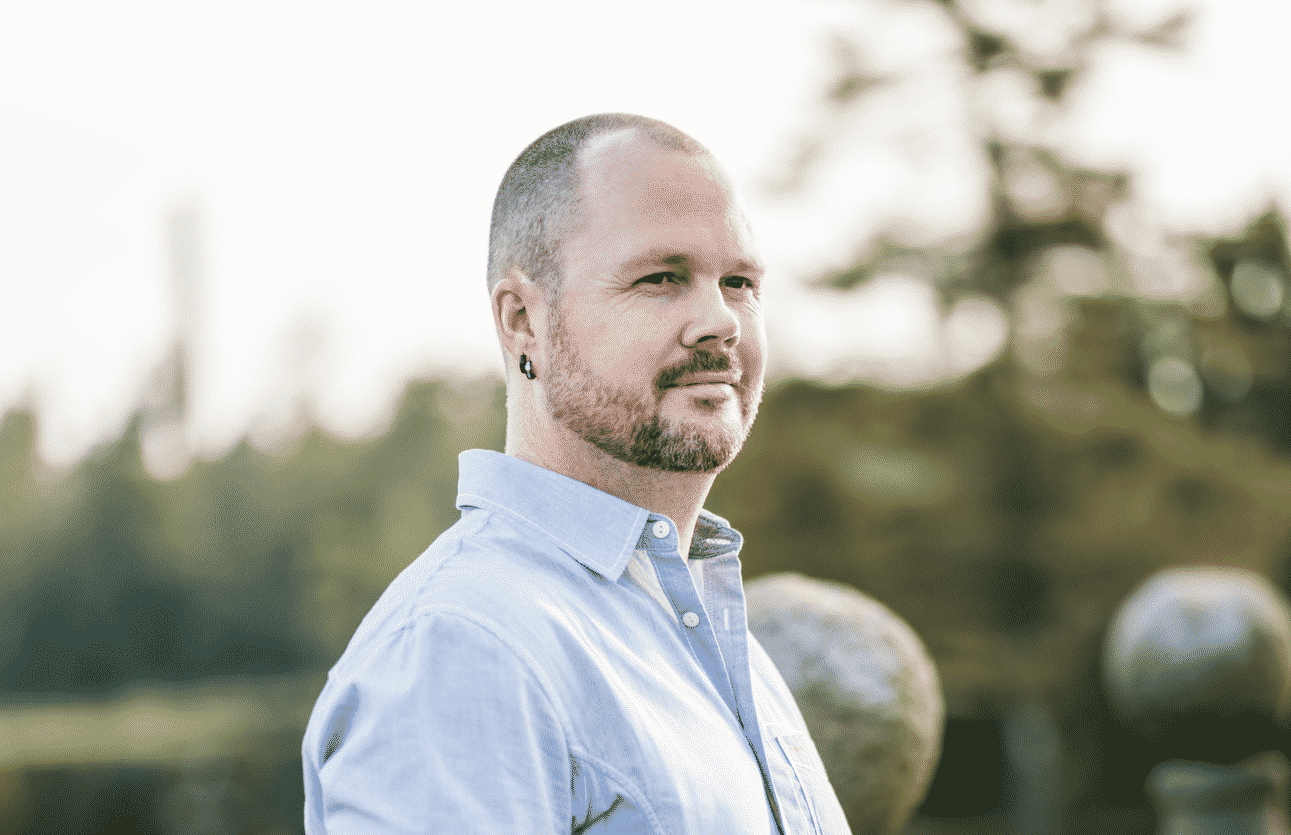James Berges • • 7 min read
Improv Changed My Life: 10 Ways It Will Make YOU Awesome

Lights up! I’m blinded, but still manage to make out 30 strange faces staring directly at me. They’re silent, but the air is breathing with the tense energy – anything can happen. My palms are sweaty, knees are weak, arms are heavy. But I’m not alone; with a shared glance, my fellow improvisers and I check in with each other and start the scene.
I signed up for my first improvisation class as part of my 30 Days of Fear Challenge.
Improv (short for improvisation) is a state of being and creating action without pre-planning. Commercially, improv is taught mainly as a comedic art-form, but it can be applied to any spontaneous moment of sudden inventiveness that comes to mind, body, and spirit as an inspiration.
No formal training is needed because we are all born improvisers. However taking a class did help me become more in touch with my intuition by repeatedly placing me in situations where I had to create meaning in a constantly changing environment. I gained insights into my deepest behavioral tendencies and shaped new, quicker and more creative thought patterns.
The lessons I took away
improvedmy life in ways I never would’ve imagined.
1) There are no failures, only revelations.
We were told on the first day that our class is an experimental atmosphere with no wrong answers. All ideas are valid. This is why improv is so liberating: by its very nature there is no fixed script. Every time we “ruined” a scene, we would laugh it off, learn from it, and try again.
It’s true that the most successful people fail fast, and fail often. Life too, has no script. Treat your life like an experiment, and test your hypotheses often so you can adjust course instead of sailing aimlessly, wondering “what if?”
You miss 100 percent of the shots you don’t take.
– Wayne Gretsky
2) Action mindset: less talking more doing.
I’m the type of person who likes to survey the scene and take in as much information as possible before taking action. The classic over-thinker.
In improv, you don’t have enough time to get stuck in your head. You have to keep the scene alive. Our teacher would push us into a scene when we least expected it. Without a script, we have no safety net.
If I wait for the perfect thing to say at the perfect time, I will never take action. The ability to act immediately is a muscle that you can tone and learn to flex and will help you take action in your life.
3) Face your fears
Public speaking and performing in front of your peers is the biggest fear on average in the U.S., with fear of dying just 6% behind.
Social anxiety holds many of us back from reaching our full potential because we are afraid of what others may think. The best way to extinguish fear is to repeatedly lean into it at the edge of your comfort zone and train yourself to relax through gradual exposure. They even have improv classes purposed specifically for social anxiety.
4) Yes, and…
In the world of improv, the number one rule is “yes, and…”
This means exactly what it sounds like: if someone comes up with an idea, instead or negating it, you take their idea as a gift and build off it.
“Yes, and…” is a philosophy to live by. From the first day of class, you are forced to build off ideas with people you met literally two minutes ago. This requires complete trust, open-mindedness, and the willingness to give your ideas away with no attachments.
Whether at school, work, or just joking with friends, you’ll learn to take anyone’s idea, build on it and make it even better. You even learn to use it in the reverse way: when you’re worried about something negative that could happen, tell yourself “yes, and… then what could happen.”
5) Patience
In improv, we instinctually want to keep talking to keep the scene alive, but this usually ends up in a cacophonous blur with zero depth. If you cut your partner off, you will miss a crucial part of their message, which will frustrate them and possibly destroy an awesome idea. Pauses create tension, which draws the audience in. They love to see the actors on stage get on the same wavelength – even if it takes them a bit longer.
Seeing that glimmer in the actor’s eye of “oh thaatt’s what you want from me” is like seeing mini-comedic epiphanies happening in real-time. It’s poetry in motion. Slow down and breathe – you are in the present moment.
“It’s the spaces between the notes that makes the music.”
6) Commitment
What really captivates an audience is commitment to your character. If you can make them laugh, great, but if you can make them care about your character and get immersed in the reality that you’ve created, they will love it and feel an authentic connection.
I had a tough time committing to one point-of-view without laughing at myself and breaking character. This led to the realization that I have commitment issues in real life too.
In our world of constant status updates and Instagrammed lunches, the current generation (including myself) is plagued with a serious case of Fear of Missing Out (FOMO); we are afraid of making commitments, because we’ll miss out on “that other thing.”
In social situations, I catch myself not always committing to what I’m saying; I’m afraid of being rejected for having a strong opinion. Taylor Mali sums it up best:
I’ve learned the hard way that not choosing one path over another is still a choice, but a passive one that leaves you in purgatory. So if you’re going to do something, give it your best or don’t do it at all. Even if you fall on your face, that’s a new revelation (see point #1). Commit to experiences and people that inspire you and don’t look back.
7) The truth is more interesting than fiction
The things that make me laugh the most are usually funny because I can relate them to my own experiences. The best comedians know this; they don’t need to reinvent the wheel, they simply expose something you already knew but from a fresh perspective.
In improv–and in daily interactions–I have the impulse to tell only the most extreme stories to catch people’s attention. But 9 times-out-of 10, a scene involving alien talking kangaroos with Australian accents is less interesting than a scene that explores the relationship between two best friends going for a drive, or a spouse telling their significant other how they feel. The interaction goes an inch wide, but a mile deep.
The greatest truths are revealed when two people allow themselves to be vulnerable.
8) Improved communication for improved relationships
Most people listen to reply instead of listen to understand.
But like a couple who fights ferociously about the dishes, there’s usually a hint of something deeper underlying the words on the surface.
One fun improv exercise is to say something in gibberish but with a distinct emotion behind it and then have your partner respond in English appropriately. For example, I could say “kadoish kadengay!” really excitedly while jumping up and down, and my partner could respond, “you got the promotion, that’s awesome!” Try it and you’ll find that it’s harder than it seems to switch from a logical mindset of language to only responding to the emotion behind the words.
97% of our communication is carried in our tone of voice, inflection, and body language. Improv teaches you to read between the lines and respond to the genuine message.
When a wise man points at the moon the imbecile examines the finger.
– Confucius
9) Great mental workout
Improv requires thinking fast, building off ideas and playing to the top of your intelligence. The most fun and challenging exercises require you to remember 7 different poses, paired with 7 different words, and recall them in rapid-fire random order. If that’s not enough to keep you on your feet, you have to keep in mind which character is played by whom, and be ready to start where you left off in an earlier scene
If meditation is calming the ocean in your mind, improv is learning to ride the waves with style.
Meditation and improv complement each other perfectly. You have to have a calm center with zero preconceived notions when improvising, but you still have to act fast and have complete awareness of your environment. Basically, improv is mindfulness put into dynamic social situation; you learn to respond with finesse and create a win/win for everyone involved.
It’s a damn good memory workout, test of creativity on the fly, and it’s social.
Improv is the most important group work since they built the pyramids.
– Bill Murray
10) It’s a blast!
Going out and playing with a community of funny creative people is extremely fun. You are all nervous together, so there’s a really supportive atmosphere where trust is a must. Plus, you get to break norms and return to a state of play like when you were a kid on the playground.
There’s something magical about this art form; you can’t be too in your head or you won’t perform well, you have to work together, and when the rhythm is just right, you reach a feeling of group-mind flow, resulting in a psychic orgasm.
Also, you’ll never be able to recreate the same exact scene twice so there’s beauty in it’s impermanence.
Improvising in front of people was one of my longest held fears. By embracing the adrenaline and knots in my stomach, I learned to literally play with that feeling, and make it my companion. I’ve never felt more proactively pumped up to follow my fear, knowing that I’ll be able to adapt to whatever life throws at me.
“Say anything,” he said. “You can’t make a mistake when you improvise.”
“What if I mess it up? What if I screw up the rhythm?”
“You can’t,” he said. “It’s like drumming. If you miss a beat, you create another.”
In this simple exchange, Sam taught me the secret of improvisation, one that I have accessed my whole life.”
-Patti Smith








